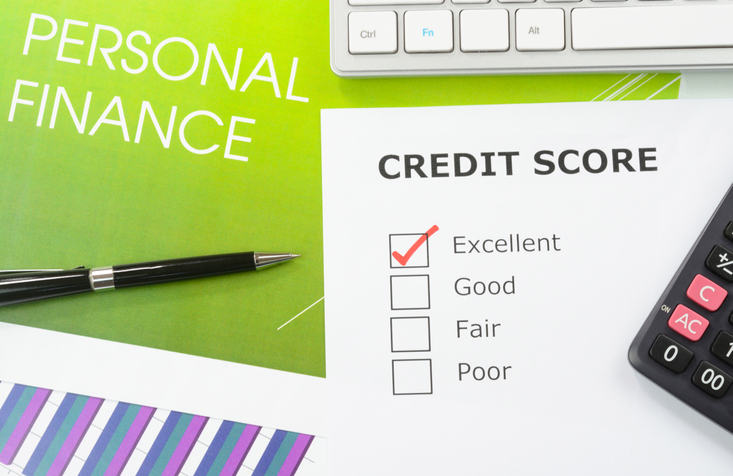
Source: RuslanDashinsky / Getty
Investopedia defines a recession as “A significant decline in general economic activity in a designated region.” The National Bureau of Economic Research expands the definition to include a decline in real income, employment, whole-sale retail sales, industrial production and Gross Domestic Product. Those are some intimidating terms but as a civilian, you might experience a recession as receiving a pay cut, a cut in shifts and/or an increase in the price of everyday items. Any combination of those experiences can put major financial strain on a family. Forbes reports that America’s next recession could come as soon as 2023. While that’s still quite a ways away, it will come up all too quickly for families who don’t have savings or an emergency financial plan.
Managing finances under the assumption that the economy will always be doing well is not the most responsible plan. A report by Market Watch shows that there’s a major gap in the average cost of living in many parts of the country and the average income. If that describes your situation and you already have your family on a tight budget, you need a plan for when a recession hits. Here are ways to recession proof family finances.
Watch That Credit Score

Source: jayk7 / Getty
Having a good credit score can be a lifesaver if things get tough. As a last resort, you might find yourself in a situation where interest rates on your credit card debt skyrocket. A good credit score could qualify you for a zero percent introductory rate at a new card, so you can transfer your balance and dodge those high rates for now. This shouldn’t be a long-term, repeat plan but it can save you when you’re in a pinch. A good credit score could also qualify you for refinancing things like your mortgage, car loan or student loans, saving you hundreds per month. Get your family on the same page about credit card use to keep those usage ratios low and boost your credit score. Be in communication with lenders about your situation to prevent issues like going into default.
Everyone Of Working Age Should Work

Source: BraunS / Getty
Boosting your emergency savings is an important part of recession proofing your finances. You hope to never have to dip into it, but if you do, you’ll be glad it’s there. Everybody in the home can pitch in. Those of legal working age can get a part-time job after school or even a weekend job. Younger kids can do simple things like walk dogs or mow lawns for neighbors for a little cash. If everyone in the household starts contributing to an emergency fund, it can build up rapidly.
Live Below Your Means

Source: Riska / Getty
Don’t just live within your means; live below them. Living within your means is fine if you feel certain your financial situation will remain the same and that the economy will continue to be strong. However, it might not prepare you for a recession. Living below your means is another way to help you boost those savings. It can also help you get accustomed to the way you might need to live during a recession. So maybe it’s about going to the discount grocery store, even though you can afford the regular one. Perhaps it’s about sharing a car when you could technically afford two right now. Maybe you go from dining out twice a week to twice a month.
Start A Small Side Hustle

Source: milan2099 / Getty
The beauty of starting a side hustle now, when things are good, is that you can always ramp it up if things get tough. So whether it’s selling jewelry online, starting an at-home doggy daycare for just a few pets, tutoring on Zoom or other utilizing special skills you have, you can build up that client base now. Then, if a recession hits and you lose your main job or see a pay cut, you can reach out to your existing clients and offer more of your services. You already have those references ready to go when seeking new clients. You could also raise your prices slightly to account for the recession.
Contribute To A Savings Account

Source: valentinrussanov / Getty
First, research banking institutions that are offering rewards for new customers. Some are offering two, three and even six hundred dollars to new customers who either meet minimums or set up direct deposit for a new savings account. Take that cash reward and funnel it right back into that savings account. Next, sit down and take a close look at your budget. Determine how much you can afford to contribute to a savings account each month. Then, set up automatic payments to move those funds from your checking account to your savings account each month. Just set it and forget it. It could grow to a nice little sum that you’re happy to have in a recession.
Diversify Investments

Source: wera Rodsawang / Getty
Recessions can be tricky when it comes to investments. You want to make sure that your investment money isn’t all tied up in one type of fund or one industry because a recession could wipe that out. Make sure you diversify. Speak to a financial advisor about how to do this. One example of a diversified portfolio could include commercial real estate, technology and gold. Your financial advisor can give you the best advice on how to invest your money and increase the chances that at least a portion of it is safe in a recession.
Build Up Three Months Of Savings

Source: Nora Carol Photography / Getty
The average duration of unemployment has varied drastically throughout the years, but it is worth nothing that Statista shows the lowest it has dropped since 1990 was 12 weeks. That’s three months. There have been times over the last few decades when that number reached nearly 40 weeks, or 10 months. At the very least, have three months of savings stored. That should mean savings to cover the essentials such as rent, food and utilities. If you have a mortgage, you can technically go into deferment and put off that expense for a while, but you’ll need to be prepared to make larger payments once you get out of deferment.
RELATED CONTENT: Recessions and Recoveries Are Not All the Same









